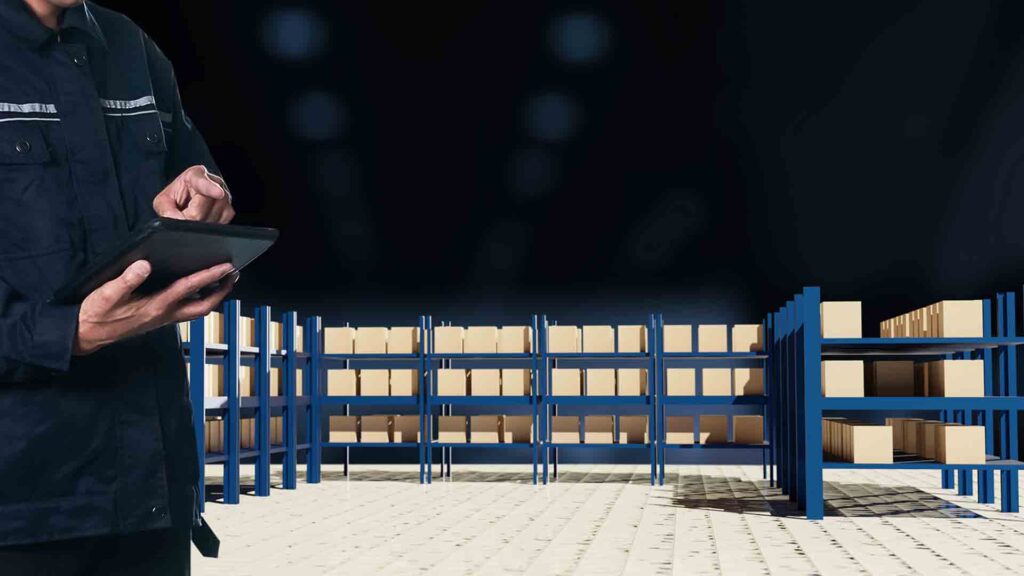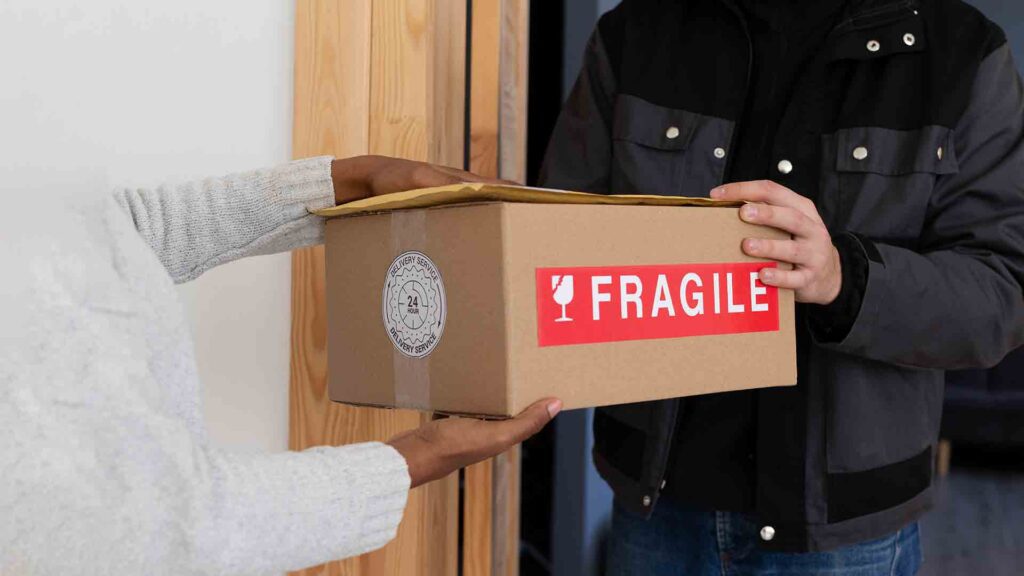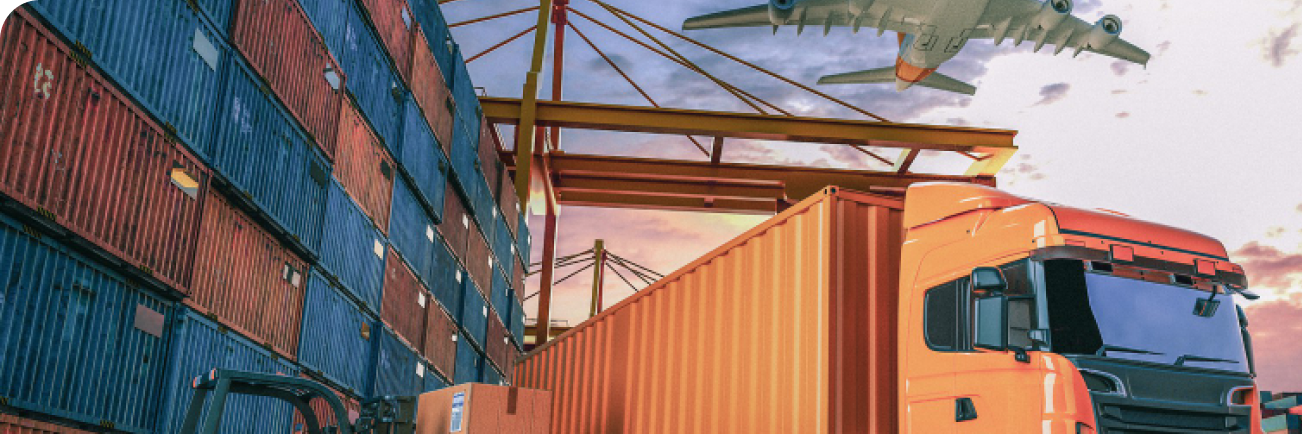In a world marked by dynamic global trade, the security of cargo during transit is a paramount concern for businesses across industries. Cargo theft, a pervasive challenge, poses risks to the integrity of supply chains, potentially resulting in significant financial losses and operational disruptions. This blog explores the landscape of cargo theft, delving into its intricacies, prevalent methods, and the proactive measures that businesses can adopt to safeguard their shipments.
Cargo Theft: Unveiling the Underworld of Stolen Shipments

Cargo theft, a pervasive issue in the logistics landscape, refers to the unauthorized taking of goods from a shipment during its transit, storage, or handling within the supply chain. This illicit activity has transformed into a sophisticated criminal enterprise, posing substantial threats to businesses, shippers, and the overall economy.
Understanding the Nature of Cargo Theft:

1. Evolution of Tactics:
– Historical Shift: From opportunistic crimes, cargo theft has evolved into an organized and strategic endeavor.
– Technology Integration: Criminals employ advanced technologies, such as data breaches and cybercrime, to identify valuable shipments and exploit vulnerabilities.
2. Economic Impacts:
– Financial Losses: Cargo theft inflicts significant financial losses on businesses due to the value of stolen goods and operational disruptions.
– Operational Disruptions: The aftermath of theft often leads to disruptions in production schedules and delays in customer deliveries.
3. Target Areas and Goods:
– High-Value Goods: Criminals focus on shipments containing high-value items like electronics, pharmaceuticals, and luxury goods.
– Geographical Hotspots: Certain regions or transportation routes become hotspots for theft due to factors like congestion and inadequate security measures.
4. Supply Chain Disruptions:
– Flow Disruptions: Cargo theft disrupts the smooth flow of goods within the supply chain, affecting manufacturing, distribution, and retail operations.
– Additional Costs: Businesses bear increased costs for enhanced security measures, insurance premiums, and potential reputational damage.
5. Role of Technology:
– Digital Strategies: Criminals leverage technology to track shipments, identify vulnerabilities, and plan thefts.
– Dark Web Presence: The dark web serves as a platform for the exchange of information and stolen goods among criminal networks.
6. Mitigation Strategies:
– Industry Collaboration: Stakeholders, including manufacturers, carriers, and law enforcement, must collaborate to develop effective countermeasures.
– Technological Solutions: Advanced tracking technologies, secure communication systems, and real-time monitoring play a crucial role in deterring theft and aiding recovery efforts.
Key Aspects in Cargo Theft

The following key aspects highlight the multifaceted nature of cargo theft:
1. Diverse Targets:
Cargo thieves target a wide range of goods, from high-value electronics and pharmaceuticals to everyday consumer products. No industry is immune, making vigilance essential across sectors.
2. Sophisticated Tactics:
Perpetrators employ sophisticated tactics, including identity theft, GPS jamming, and even collaboration with insiders. This requires a proactive and multi-layered approach to security.
3. Hotspots and Trends:
Certain regions and transportation routes are more susceptible to cargo theft. Recognizing these hotspots and understanding emerging trends is crucial for risk mitigation.
Preventing Cargo Theft: A Strategic Imperative

1. Technology Integration:
Leveraging advanced technologies such as GPS tracking, RFID, and telematics enhances real-time visibility and allows for prompt response in case of unauthorized deviations.
2. Secure Packaging:
Employing tamper-evident seals and secure packaging solutions acts as a deterrent and facilitates the identification of potential tampering.
3. Route Planning and Intelligence:
In-depth analysis of transportation routes, including historical theft data, enables the creation of secure and efficient delivery plans, avoiding high-risk areas.
4. Collaborative Efforts:
Collaboration between logistics providers, law enforcement agencies, and industry stakeholders fosters information sharing and the development of comprehensive security strategies.
The Role of Technology

In the perpetual battle against cargo theft, technology emerges as a formidable ally, empowering businesses to safeguard their shipments with precision and real-time monitoring. Let’s delve into the transformative role of innovations such as GPS tracking, RFID technology, and other cutting-edge solutions in fortifying cargo security.
GPS technology has revolutionized cargo security, offering real-time tracking capabilities that significantly enhance visibility and responsiveness.
– Precision Monitoring: GPS-enabled tracking systems provide granular visibility into the location and movement of shipments, enabling businesses to monitor their cargo with unparalleled precision.
– Real-Time Alerts: Instant notifications of any deviation from the predefined route or unscheduled stops empower logistics teams to respond promptly to potential security threats.
– Geofencing: Establishing virtual perimeters around designated routes or storage facilities allows for the creation of geofences. Any breach triggers immediate alerts, ensuring swift action.
2. RFID Technology: Enhancing Traceability and Authentication
Radio-Frequency Identification (RFID) technology introduces a new level of sophistication to cargo security by enabling seamless and automated identification of goods.
– Automated Authentication: RFID tags attached to cargo enable automated and accurate identification, reducing the risk of unauthorized handling or tampering.
– Data-rich Visibility: Beyond location, RFID provides rich data, including temperature, humidity, and handling conditions, offering a comprehensive overview of the cargo’s journey.
– End-to-End Traceability: From manufacturer to end-user, RFID facilitates end-to-end traceability, aiding in the swift detection of irregularities in the supply chain.
3. Smart Sensors: Preserving Cargo Integrity
Smart sensors play a crucial role in maintaining the integrity of sensitive or perishable goods, contributing to both security and quality assurance.
– Environmental Monitoring: Sensors can track and report environmental conditions such as temperature and humidity, ensuring that pharmaceuticals, perishables, or other sensitive cargo remain within optimal ranges.
– Impact Detection: Smart sensors can detect impacts or vibrations that may indicate mishandling or potential theft attempts, triggering immediate alerts for intervention.
4. Blockchain: Immutable Security Layers
Blockchain technology introduces immutable and transparent security layers to the supply chain, reducing the risk of fraudulent activities.
– Tamper-Proof Records: Blockchain’s decentralized and tamper-proof ledger ensures that once data is recorded, it cannot be altered, providing a secure and transparent record of the cargo’s journey.
– Smart Contracts: Automated execution of predefined smart contracts at different stages of the supply chain adds an extra layer of security, ensuring adherence to agreed-upon terms.
Conclusion: Battling the Cargo Theft Menace
Cargo theft demands a comprehensive and collaborative approach from the entire logistics ecosystem. Businesses need to implement robust security protocols, leverage cutting-edge technologies, and actively participate in industry-wide initiatives to outsmart the increasingly sophisticated tactics employed by criminal enterprises. The fight against cargo theft is ongoing, requiring constant vigilance, technological innovation, and collective efforts to ensure the security and integrity of global supply chains.
At Galaxy Freight, safeguarding your cargo is at the heart of our operations. We employ a combination of state-of-the-art technology, rigorous security protocols, and strategic partnerships to ensure that your shipments reach their destination securely and intact.
As the logistics industry continues to evolve, so do the challenges it faces. Cargo theft, a persistent adversary, demands a proactive and adaptive approach. Partner with Galaxy Freight to fortify your supply chain against the complexities of cargo theft. Contact us today to experience the Galaxy Freight advantage – a secure and reliable partner in the intricate landscape of global logistics.



